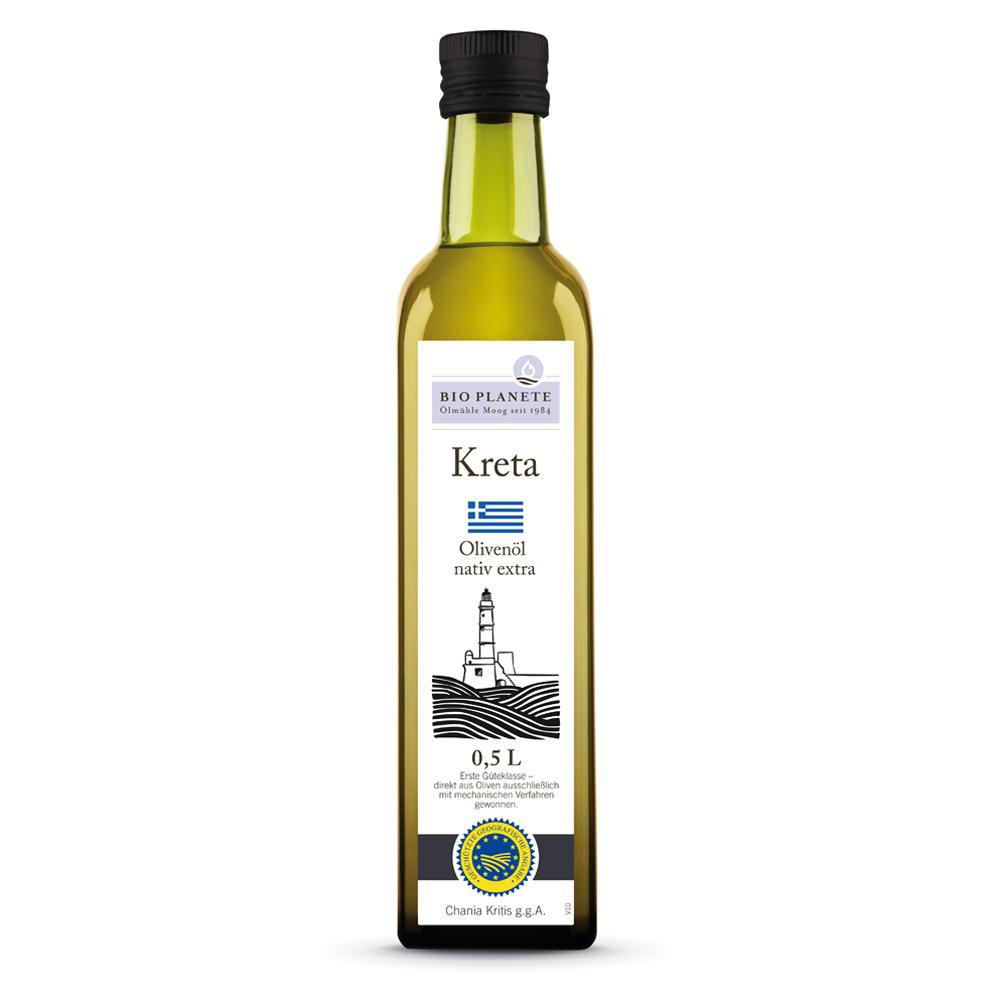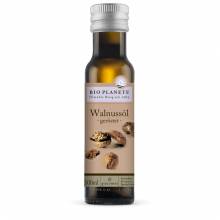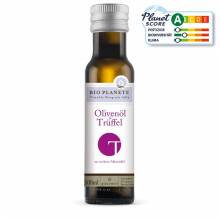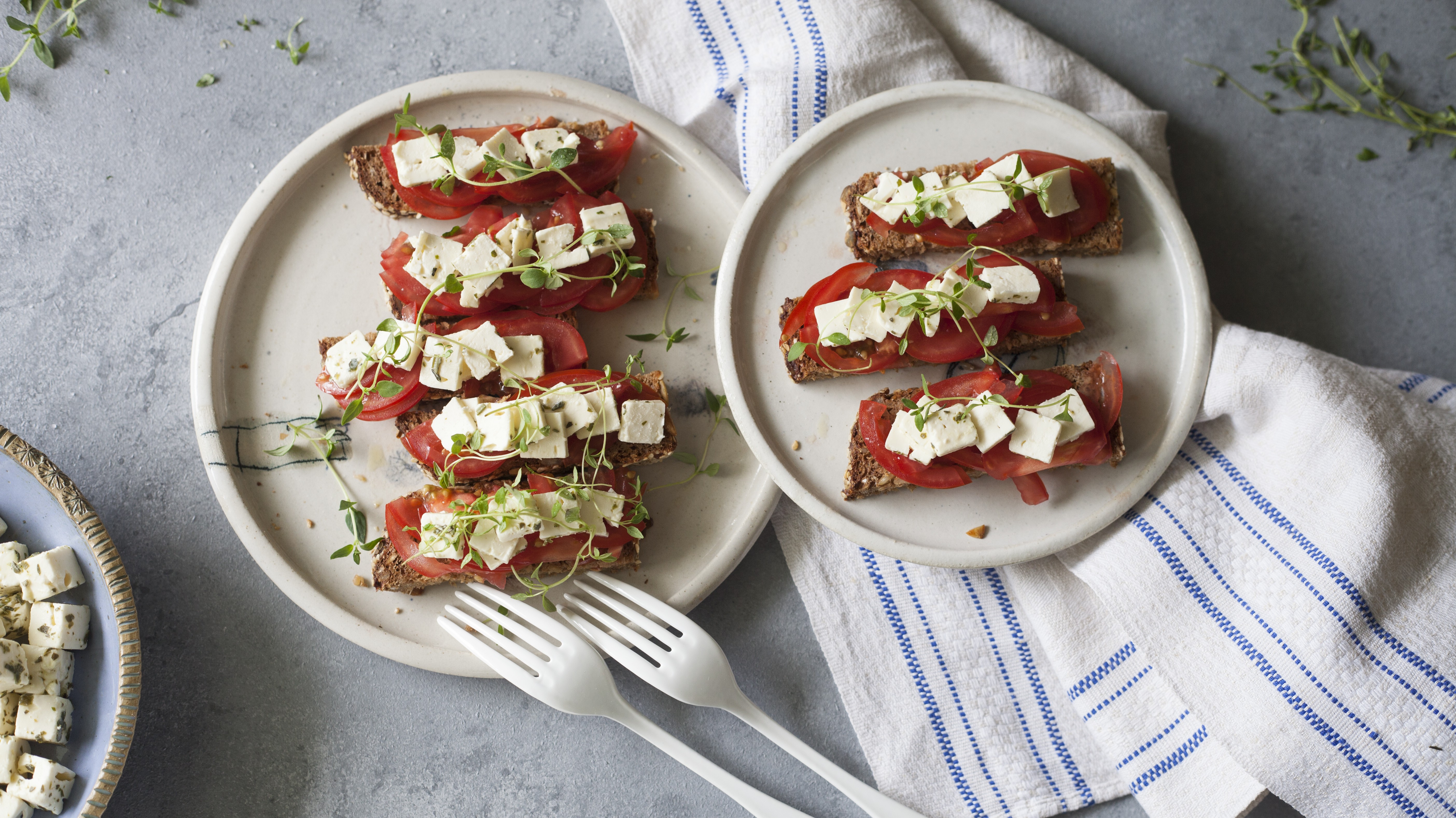Olive Oil Extra Virgin Crete P.G.I.
· Olive Oil Extra Virgin ·
500 ml
Crete, a Greek island full of legends, offers the ideal Mediterranean climate for olives: Warm summers, mild winters, and little rain are the best conditions for olive cultivation.
BIO PLANÈTE Olive Oil Crete P.G.I. originates from the sun-blessed region Chania in the island’s Northwest. The exclusiveness of this oil lies in its protected geographical indication (P.G.I.). This means that at least one step of the production (production, processing, manufacture) has to occur in the indicated area. The Koroneiki olives for this exquisite single varietal oil are picked from more than 10,000 olive trees our partner cultivates.
Recipe ideas and use of Olive Oil Extra Virgin Crete P.G.I.
This oil lends lots of freshness with a pleasantly Mediterranean note to your dishes, it harmonizes perfectly with raw vegetables, warm vegetable preparations and Greek feta cheese. Fruity and balanced, it caresses the palate with fine nuances of fresh herbs and lemon.
You are also welcome to try out our BIO PLANÈTE Olive Oil Extra Virgin Priego de Córdoba P.D.O. from Spain.
When harvesting our olives, we can rule out the possibility of birds being killed by highend automated harvesting equipment. We are in constant close contact with our farmers, who only harvest olives during the day using gentle vibration machines or by hand. Learn more about olive harvesting techniques here.
Product of organic farming
-
What does "virgin" mean in the context of oils?
A virgin oil is a cooking oil which is obtained exclusively using mechanical processes without preheating the raw materials. It is not subjected to chemical or thermal treatment or to any other refinement process and thus preserves its authentic, natural taste and the essential components of the raw material. This also makes it suitable for eating raw.
-
Is olive suitable for frying?
Olive Oil is made up primarily of mono-unsaturated fatty acids (58 – 70 %) as well as saturated acids (13 – 17 %) which are much more heat-stable than polyunsaturated acids (content in Olive Oil: 11 – 15 %). This means that Olive Oil, in contrast to other vegetable oils like Flaxseed or Walnut Oil, is very well suited to frying. But Olive Oil can strongly influence the taste of the fried goods. If you dislike the taste of Olive Oil, you can use our BIO PLANÈTE Cooking & Frying Olive Oil, which is designed especially for this purpose.
But as for all oils: do not heat beyond the smoke point! In addition, only filtered Olive Oils should be used for frying because otherwise, the suspended particles may lower the smoke point. Therefore, our unfiltered Olive Oil Fraîcheur is not suitable for frying. -
How does the place of origin influence the taste of Olive Oil?
Olive Oil is a little bit like wine: the character of each Olive Oil is strongly influenced by the variety used and by the typical traditional and cultural influences of the region. But the climatic conditions in each harvest year also play a special role in relation to taste. As a result, the profile of each Olive Oil – like that of wine – is slightly different every year.
-
Is the bitter taste of Olive Oil a sign of low quality?
On the contrary: the more bitter the Olive Oil, the higher the content of essential polyphenols. They protect the olive from spoiling due to oxidisation. Olive Oil polyphenols also perform these anti-oxidative functions in our bodies and thus protect us from free radicals. They e.g. obstruct the oxidisation of damaging LDL cholesterol and support beneficial HDL cholesterol, thereby offering effective protection against cardiovascular diseases. In addition, Olive Oil polyphenols can block the enzymes involved in inflammatory reactions. As such, they have anti-inflammatory properties.
-
Are green and black olives different varieties?
They are different ripeness levels. Green olives as used for our Fraîcheur are very young and only just ripe. They have a strongly bitter taste and thus a high polyphenol content. Yield after oil pressing is quite low. By contrast, riper black olives produce more oil during pressing. The oil is more fruity and less bitter.
-
Can I freeze Olive Oil?
Yes, you can freeze Olive Oil without impacting on quality or taste. Some of the oil may solidify to form small white flakes. This is entirely natural and they will dissolve again at room temperature.
-
How long can I keep Olive Oil?
In contrast to wine, Olive Oil does not get better with age. Its essential components, such as mono-unsaturated fatty acids, vitamin E and polyphenols are broken down when stored for a long time. This also creates substances which negatively impact on taste. That's why you should use Olive Oil within a year or at most two years of it being harvested. The use-by dates give you a safe guidance value of good quality and taste.
-
Are Olive Oils from different places of origin mixed together?
The BIO PLANÈTE Classic category includes one mild, one medium-fruity and one fruity Olive Oil. For reasons of taste, we sometimes create these oils as so-called "olive oil cuvées": In individual cases, batches are mixed together carefully and based on strict criteria in order to obtain an optimal taste. This means that we can reliably ensure that the bottle will actually contain a mild, medium-fruity or fruity Olive Oil at all times.
As with wine, Olive Oils from the same growing region can be very different year on year – depending on the climate or harvest time. So they can also taste very different each year. If you choose one of the country-specific Olive oils with a protected designation of origin from our gourmet category, you can be sure that only olives from the respective country or growing region are used. Our Olive oil "Fraîcheur" is also an authentic Olive Oil made from Arbequina olives. -
Can I also use Olive Oil in cosmetics?
Most Olive Oil is used as food. But Olive Oil is also used in cosmetic products for skin and hair, including to make soap. In addition, Olive Oil is used to grease clocks and as fuel in oil lamps.
-
What does the smoke point of Olive Oil depend on?
The smoke point depends on the free fatty acid content in the oil. This content e.g. increases significantly over time for oil which is repeatedly used for frying. The more free fatty acids in the oil, the lower the smoke point. The smoke point of our Olive Oils is likely to be around 190°C, but this can vary year on year.
Olive Oils in the quality category "natural extra" are subject to high quality requirements. Their free fatty content must not exceed 0.8 %. Other vegetable oils can contain as much as 2 %. In reverse, this means that the smoke point of high-quality Olive Oils is relatively high. -
How are olives harvested? Do birds die during olive harvest?
No. Our olives are harvested by hand using gentle rocking techniques. The olives fall on a collecting screen which the farm labourers can remove. We maintain continuous close contact with our farmers and can definitively confirm that, in the absence of highly automated harvesters, no songbirds are killed. Our farmers grow their olives in traditional regions using old, large olive trees on rocky ground which make it impossible to use such harvesters.
-
How should I store Olive Oil?
Olive Oil should always be protected from light irradiation. That's why we always fill our BIO PLANÈTE Olive Oils in high-quality light-protection bottles which shield the oil from light and oxygen. Olive Oil can be stored in the fridge, but this is not a requirement. It also lasts for many months at room temperatures.
-
Can I still use flaky Olive Oil?
Olive Oil can become flaky at temperatures below +7°C. This is normal and does not influence its quality or taste. If you increase ambient temperature again, the oil will liquefy again within only a few hours.
-
What conditions and standards are behind the organic seal on our oils?
An organic seal is a quality and test seal with which products from organic farming are marked. In 2010, a binding new organic seal was introduced throughout the EU, also known as the EU organic logo, which identifies food from organic farming (a star-shaped leaf on a green background).
This seal replaced the German state organic seal (green hexagon with "BIO" lettering), which had existed since 2001, with the same standards in terms of content. Due to the high degree of popularity of its predecessor, both seals are still often used today.
The use of this certification is strictly regulated by the publisher and is subject to ecological requirements. Compliance with the criteria by producers is ensured by a documentation obligation as well as regular sampling and examination of product samples. Compliance with the regulations is monitored in Europe by the responsible Eco-Control bodies.
Foods labelled with the organic seal must, among other things:
• Not be produced by or with/from genetically modified organisms
• Not to be produced with the use of synthetic pesticides
• Contain no more than 5% conventionally produced components (in exceptional cases, if ingredients are not available in ecological quality, in accordance with Annex VO)
• not contain sweeteners and stabilisers as well as synthetic colourants, preservatives and flavour enhancers
• not result from monotonous crop rotations (two-, three- and four-field farming)
• and much more: more information on the EU Organic Label -
Can I use the oil even after the expiration date?
We can no longer guarantee the oil's perfect quality after its best before date.
In the interest of sustainability, however, we would like to point out the following: vegetable oils do not belong to the group of very sensitive foodstuffs and can usually still be consumed after the best-before date. This is especially true if the bottle is still sealed and it has been stored away from heat sources. Therefore, we recommend using your senses to test the oil before disposing of it. Oil that has been stored for too long can be easily recognized by smell and taste. If it tastes rancid or unusual (off), it should not be consumed. -
How do I remove the labels from the jars and bottles?
Since we use oil-soluble glue for the labels, the best way to remove the label from the coconut jars is with oil. Simply coat the label with oil, let it absorb overnight and peel off easily in the morning. However, if the label is already off and only the glue is on it, this method doesn't work as well. In this context, we have been told of positive experiences with orange oil cleaner, such as from AlmaWin or Sodasan. Another option is a hair dryer - because heat also loosens the label well.
Get more suggestions at Upcycling & Creative.






